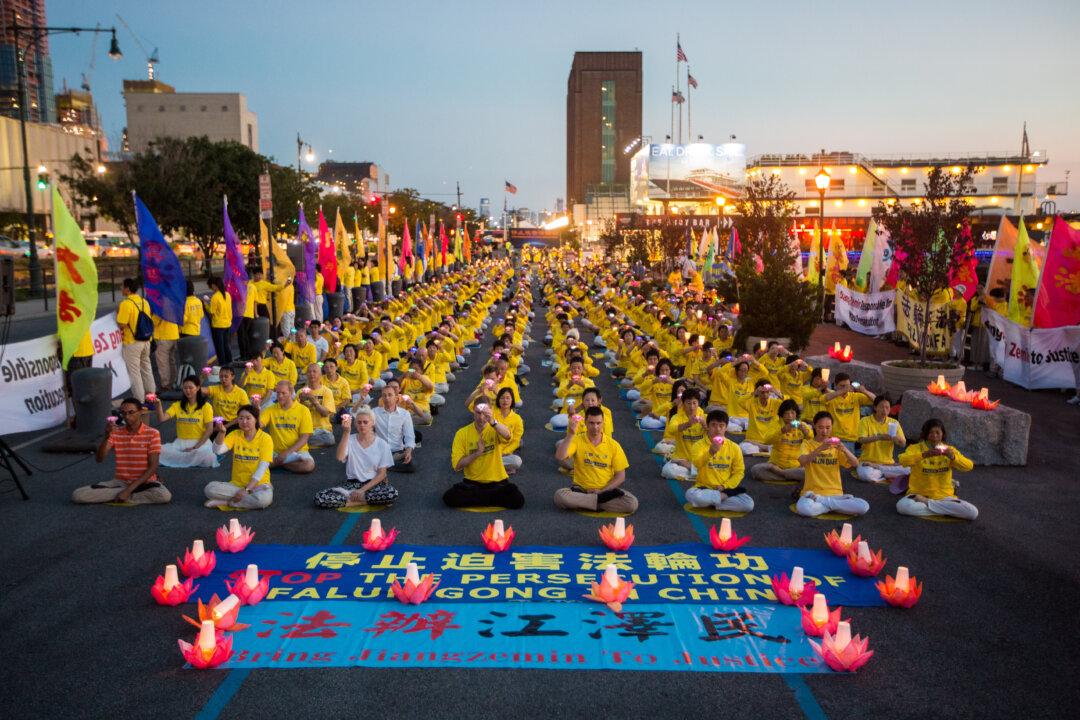As the Chinese regime’s violent repression continues in Tibet, another group claims that they too are experiencing heightened persecution.
Since January of this year, representatives of the Falun Gong spiritual practice say that the Chinese regime has tortured over 100 Falun Gong adherents to death, mostly in reeducation-through-labour camps.
The New York-based Falun Dafa Information Center claims to have received reports from inside China of over 1,878 arrests of Falun Gong adherents since January. The Centre says that authorities in at least 29 Chinese provinces have been conducting door-to-door searches in search of Falun Gong practitioners or anyone in possession of Falun Gong-related books or materials.
According to reports relayed by Falun Gong inside China, the Public Security Bureau has been offering cash rewards to citizens who turn in Falun Gong adherents. In one city in Shandong province, authorities have announced a reward of up to 3,000 Yuan for information leading to the arrest of a Falun Gong practitioner.
Once detained, the Falun Gong adherents are sent without trial to reeducation-through-labour camps, where reports indicate they face torture and other forms of abuse.
Pretext for Repression
When bidding for the 2008 Games, the Vice-President of the Beijing Olympics committee, Liu Jingmin, promised the international community that awarding China the Games would “help develop human rights.”Yet internally, Chinese authorities expressed a very different understanding. According to a 2001 report by the Australian Broadcasting Corporation, China’s former Vice Premier declared that winning the Olympics was “justification for the country’s crackdown on the Falun Gong.”
Similarly, articles appearing in China’s state-run People’s Daily newspaper noted that the Olympics signaled the international community’s endorsement of the handling of Tibet.
China’s former Public Security Minister Zhou Yongkang has also been quoted as saying that the country must “strike hard at hostile forces at home and abroad, such as ethnic separatists, religious extremists, violent terrorists and … the Falun Gong” in order to ensure the success of the Olympics.
In a new report on human rights in China, Amnesty International noted the continued plight of activists and journalists who have faced persecution for attempting to draw attention to human rights abuses.
“It is increasingly clear that much of the current wave of repression is occurring not in spite of the Olympics, but actually because of the Olympics,” read the report.
“Peaceful human rights activists, and others who have publicly criticized official government policy, have been targeted in the official pre-Olympics ‘clean up’, in an apparent attempt to portray a ’stable‘ or ’harmonious’ image to the world by August 2008.”
The Amnesty Report also implied that recent allegations by Chinese authorities of planned terrorist attacks on the Olympic Games may have been fabrications.
“… a failure to back up such assertions with concrete evidence increases suspicions that the authorities are overstating such threats in an attempt to justify the current crackdown.”
Chinese authorities in March claimed that members of the ethnic Uighur minority – who, like the Tibetans, have been advocating for greater autonomy and religious freedoms – were plotting a terrorist attack on an airplane.
This week, authorities claimed that Tibetans were plotting suicide attacks. It offered no evidence to support the claim.





